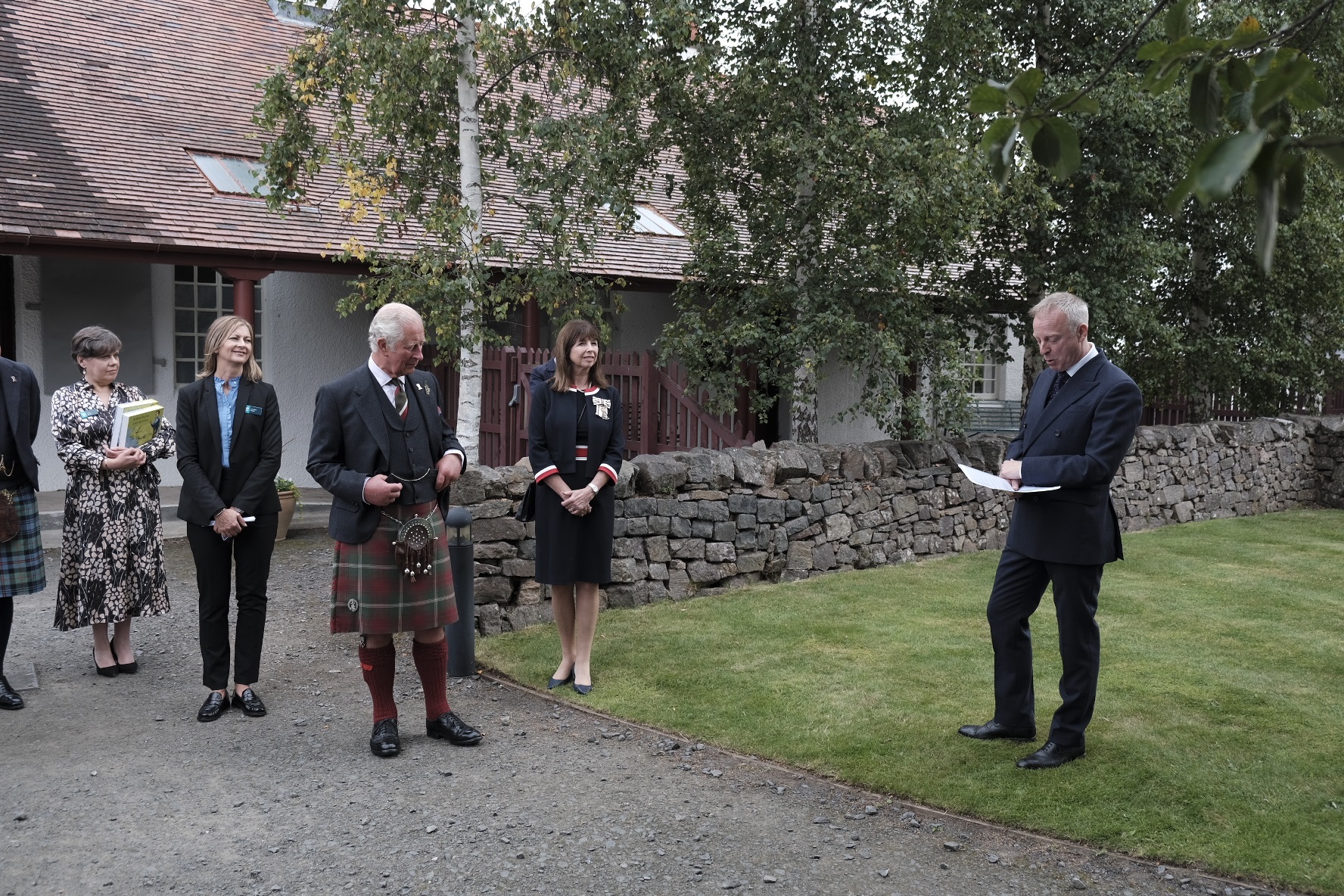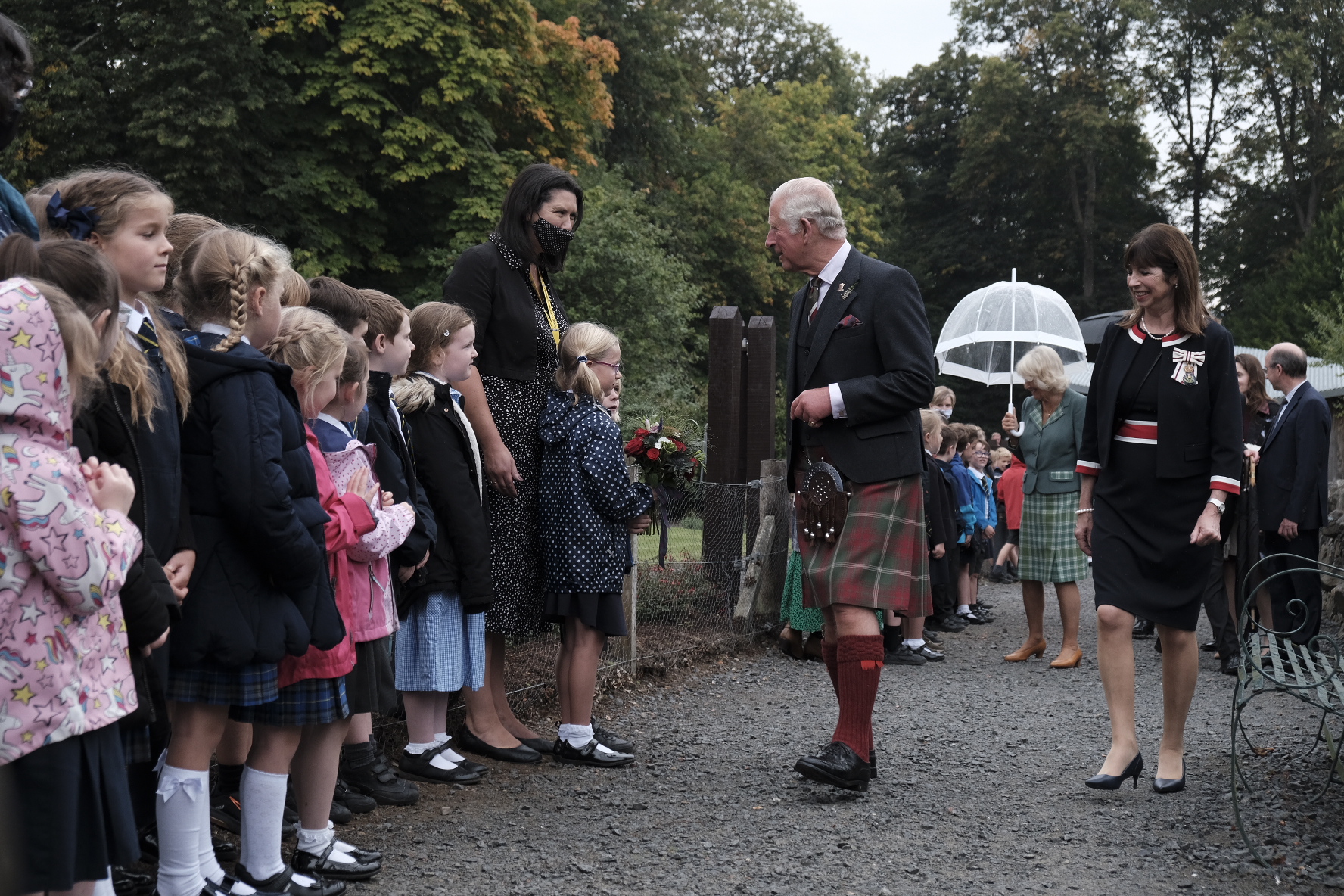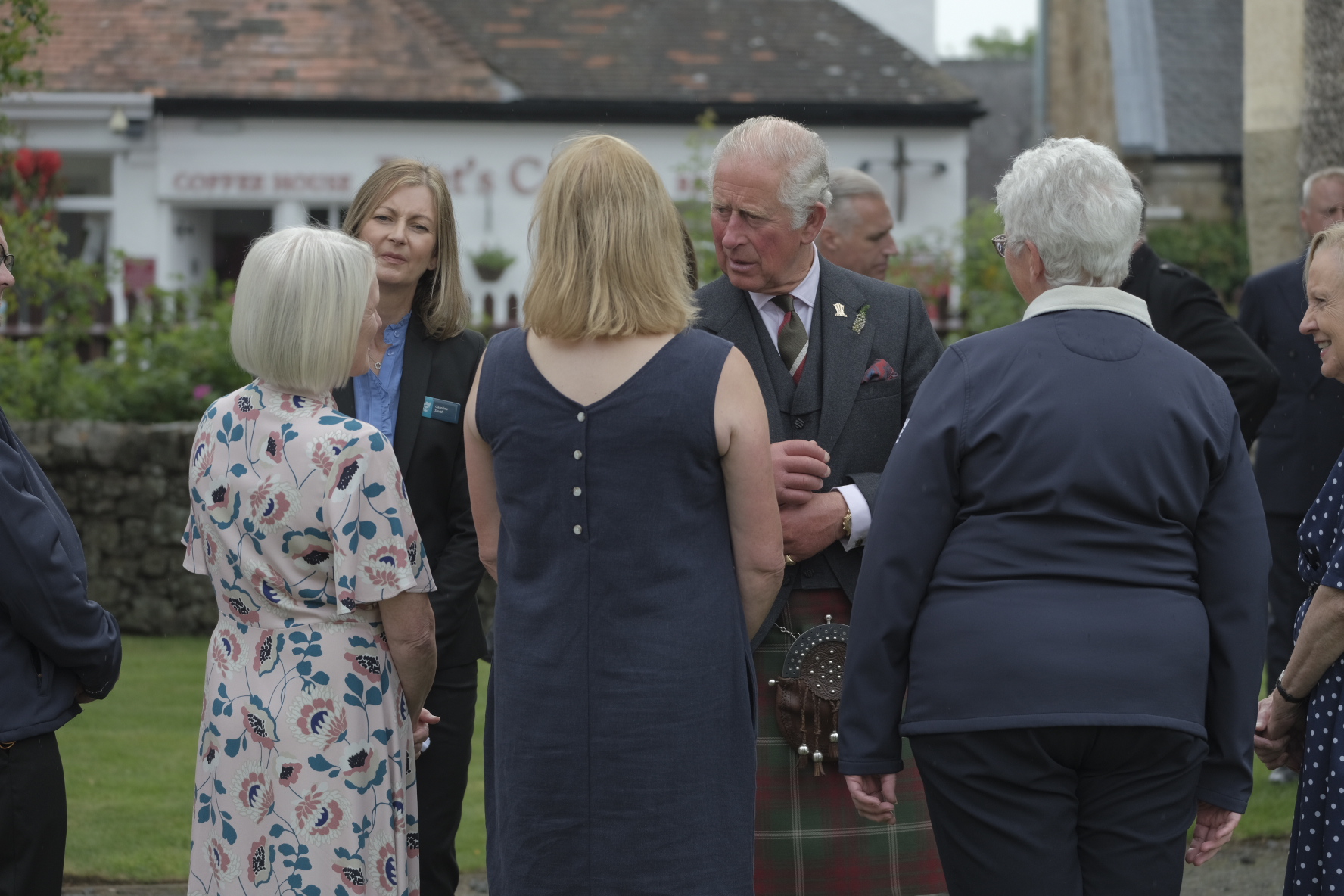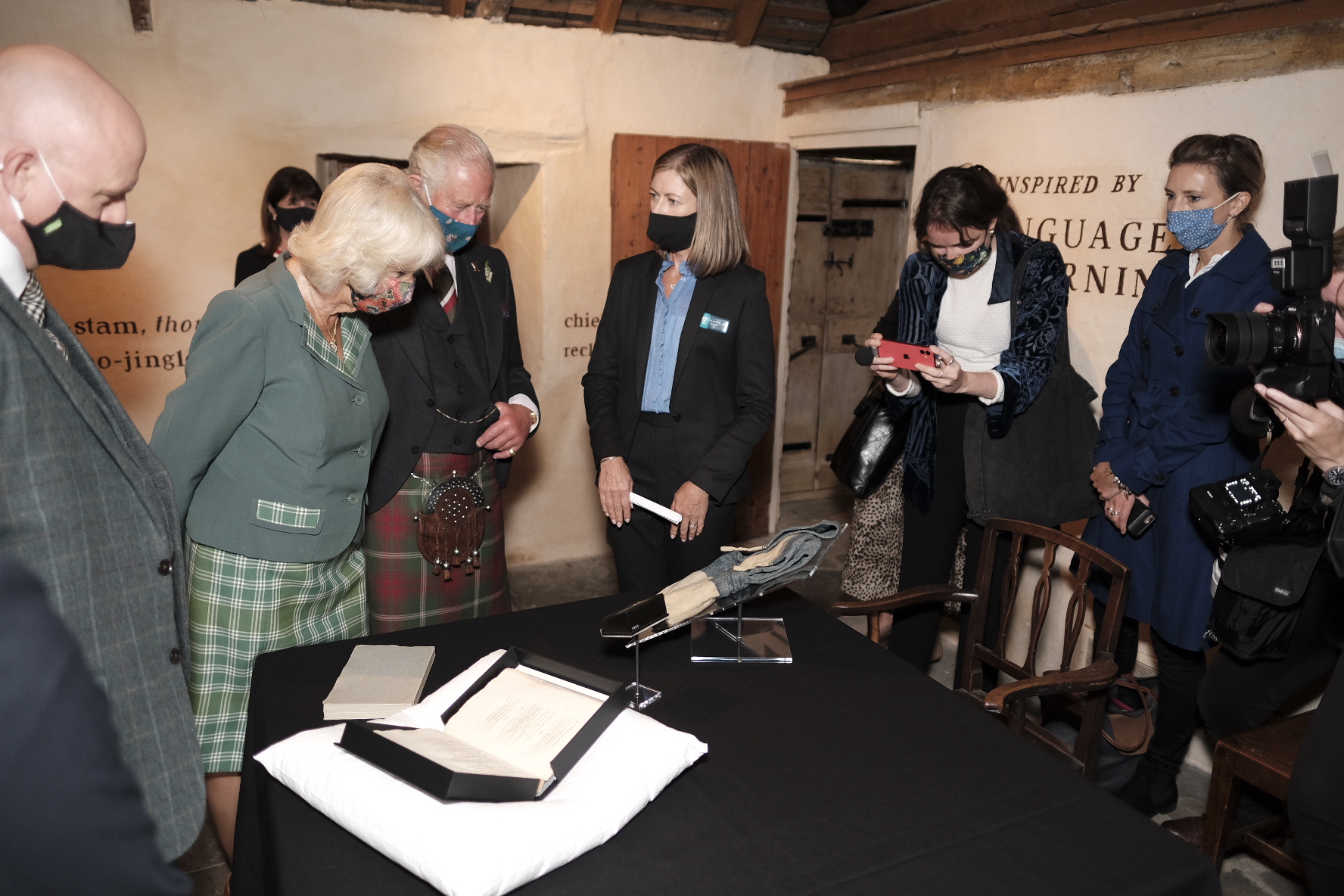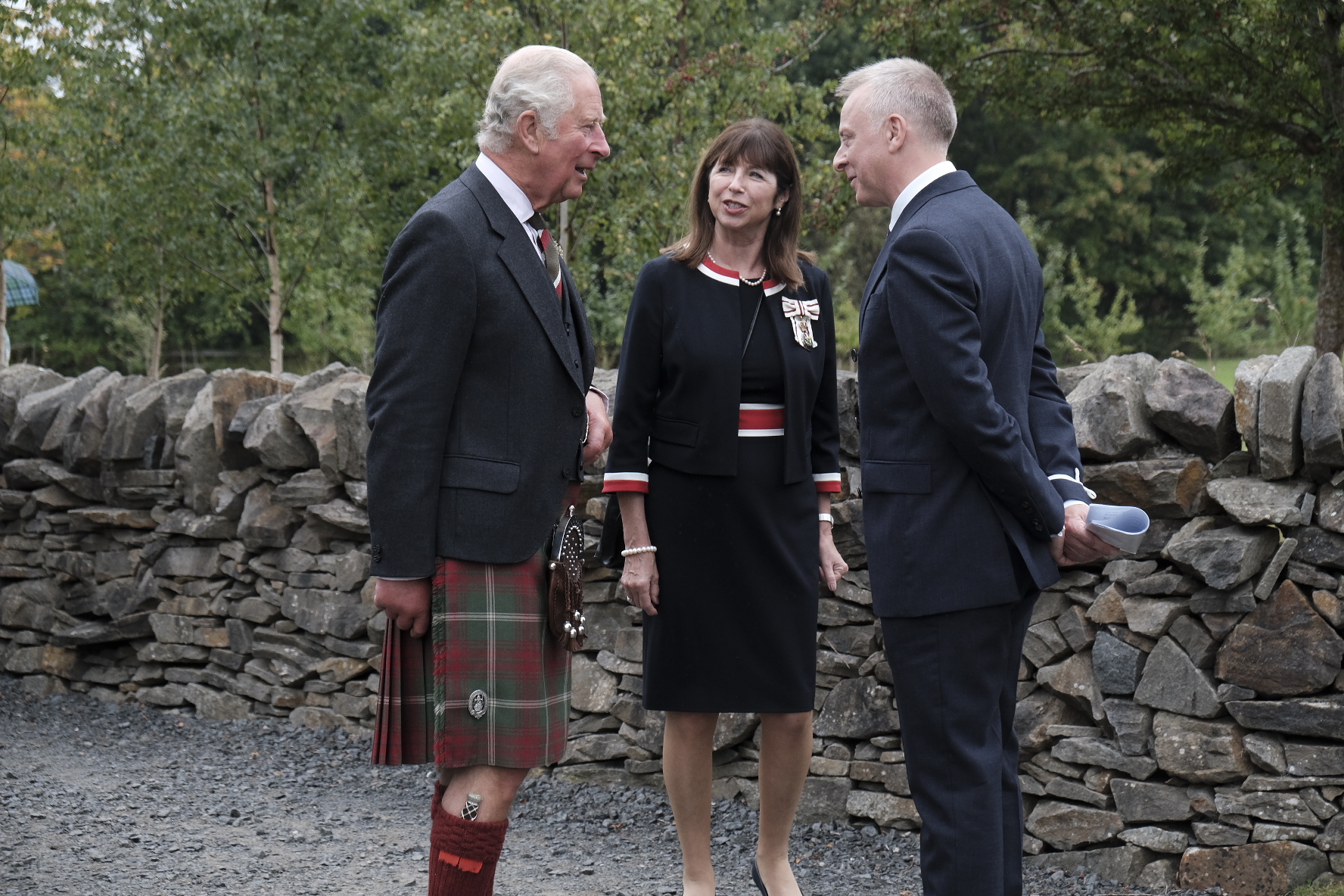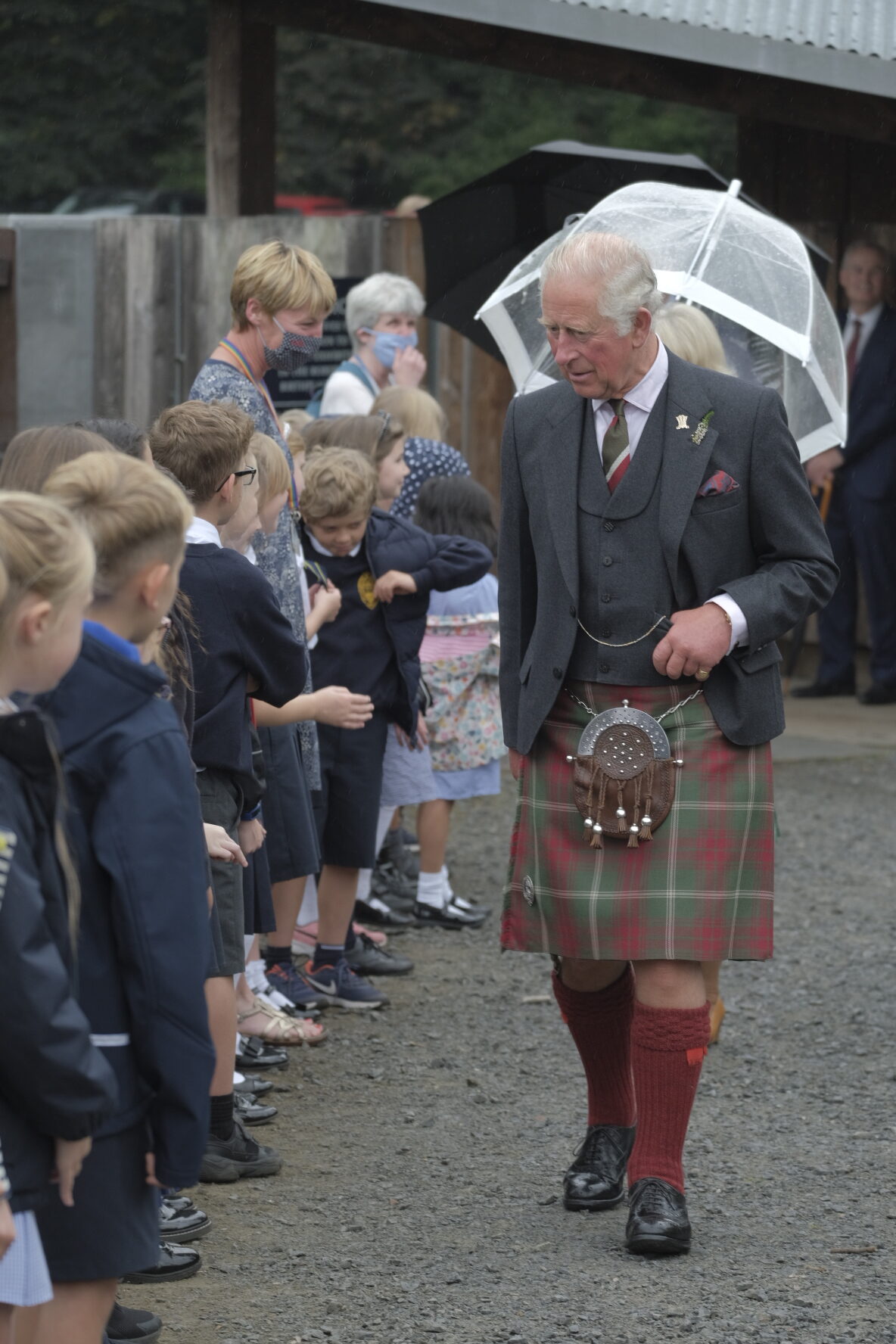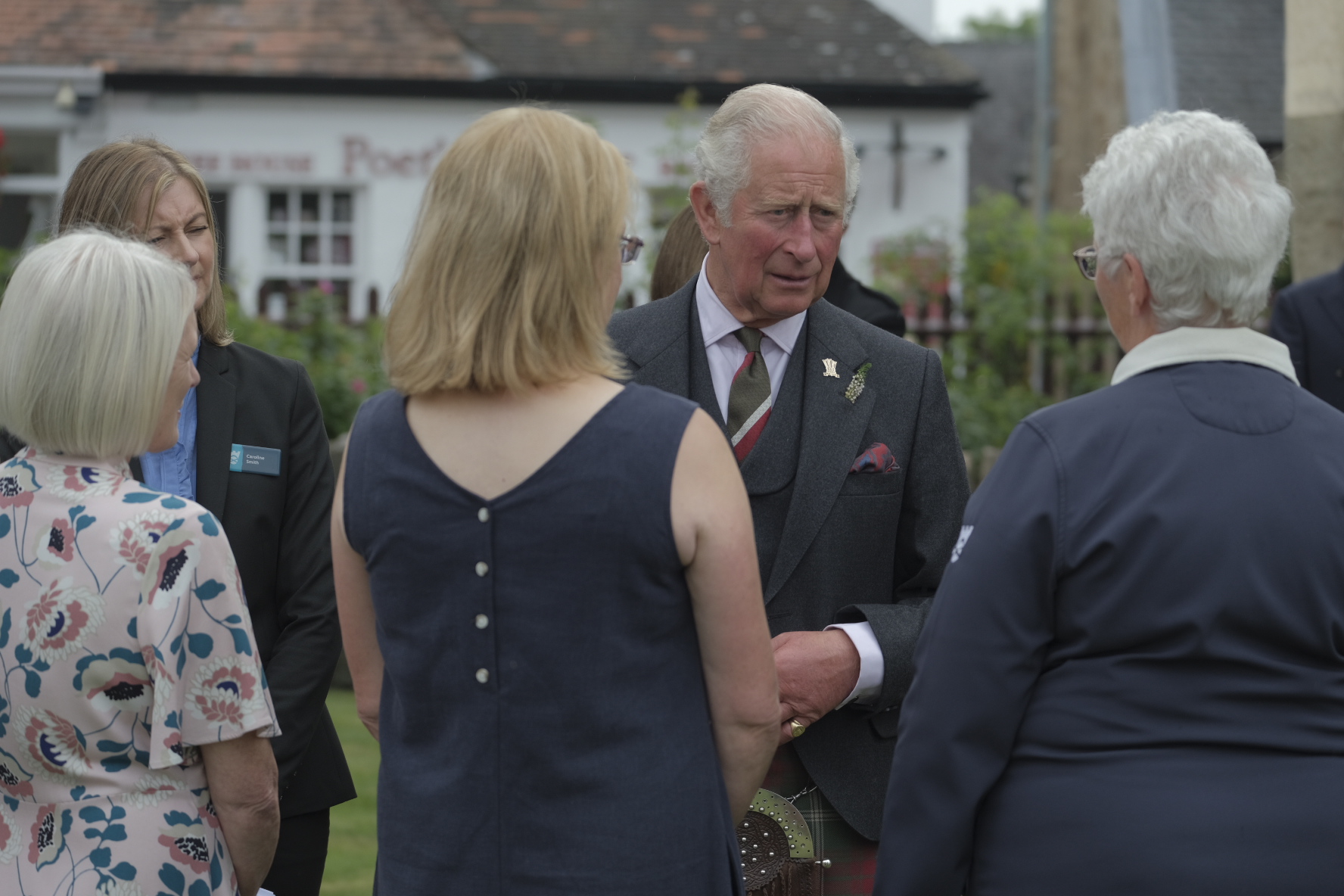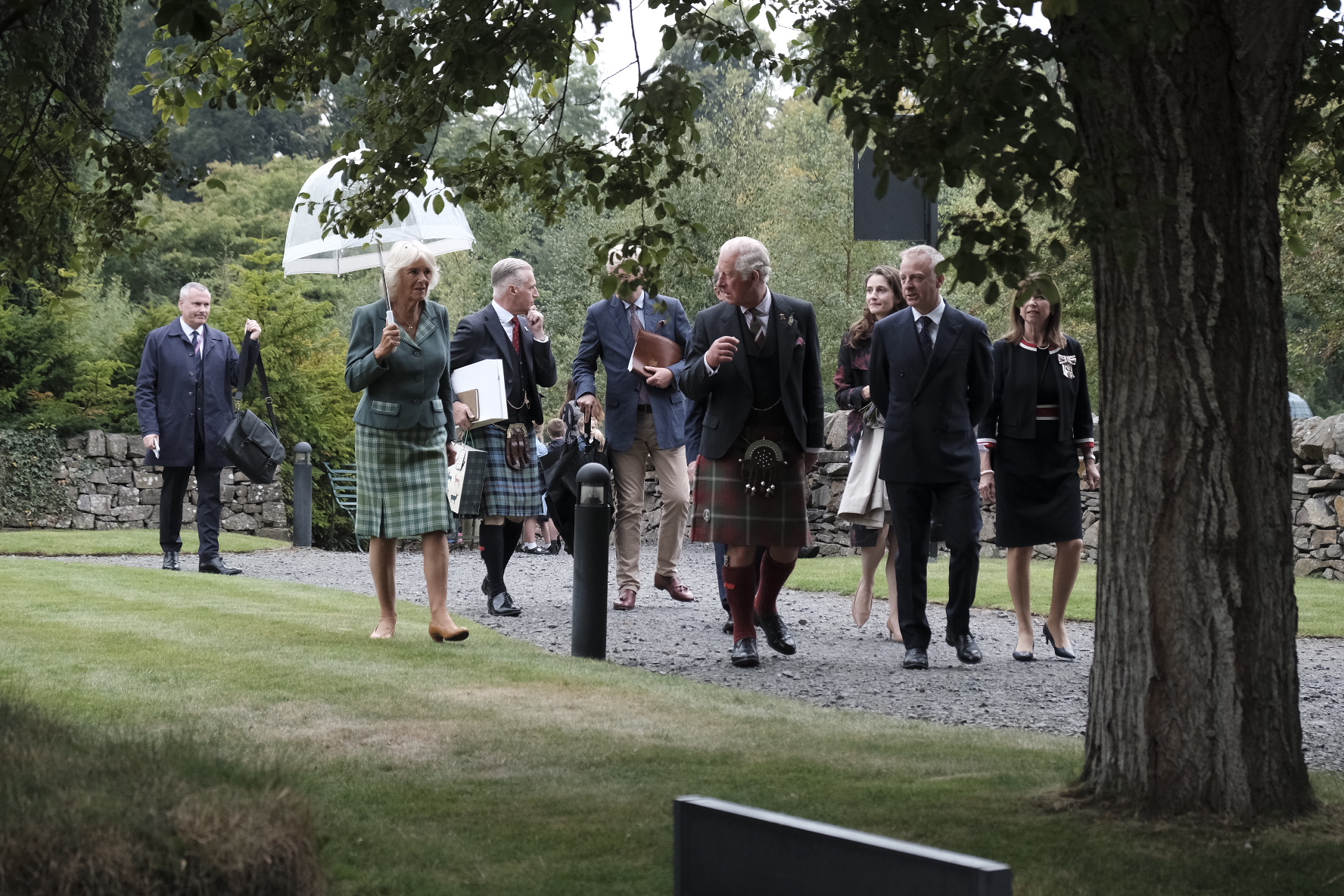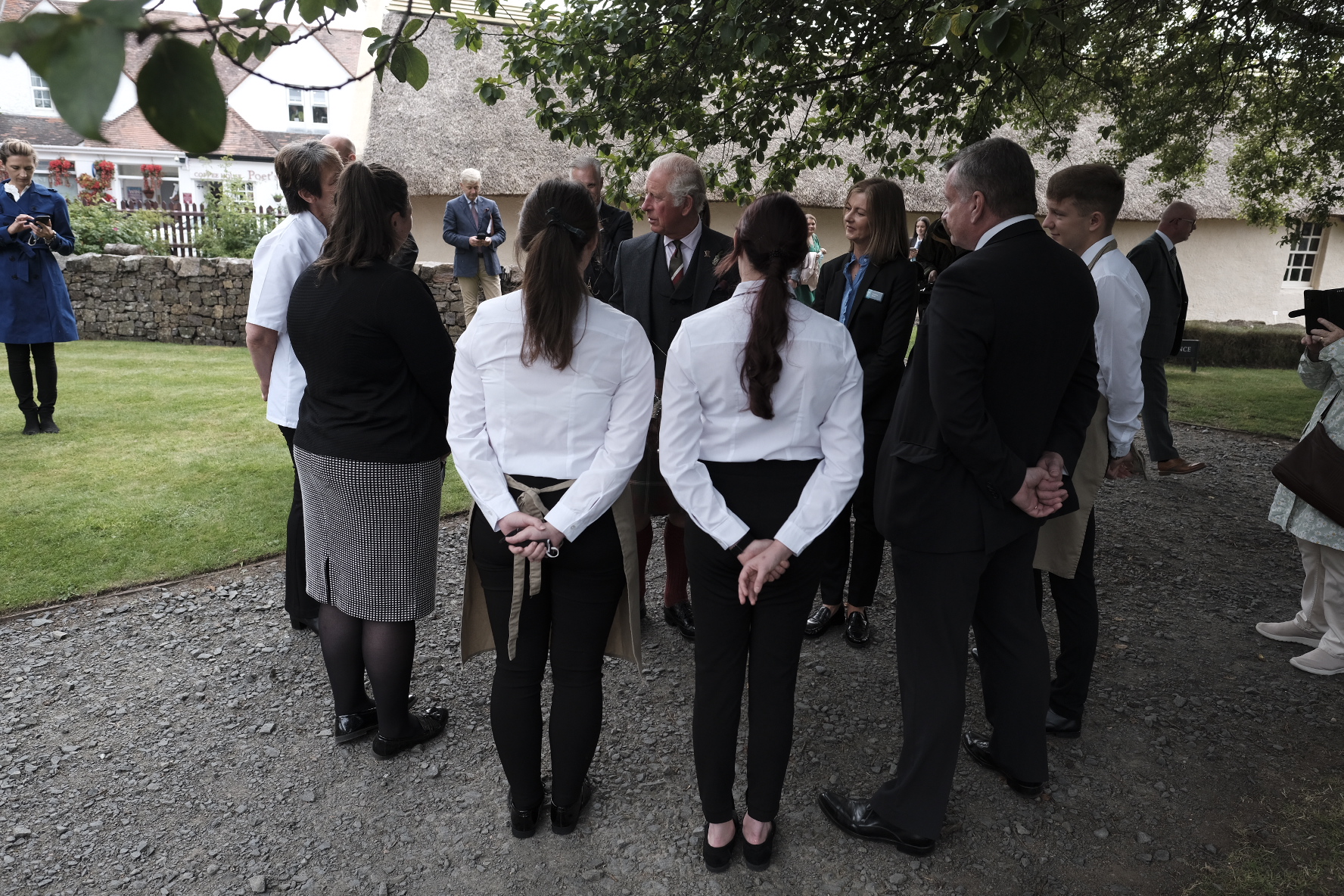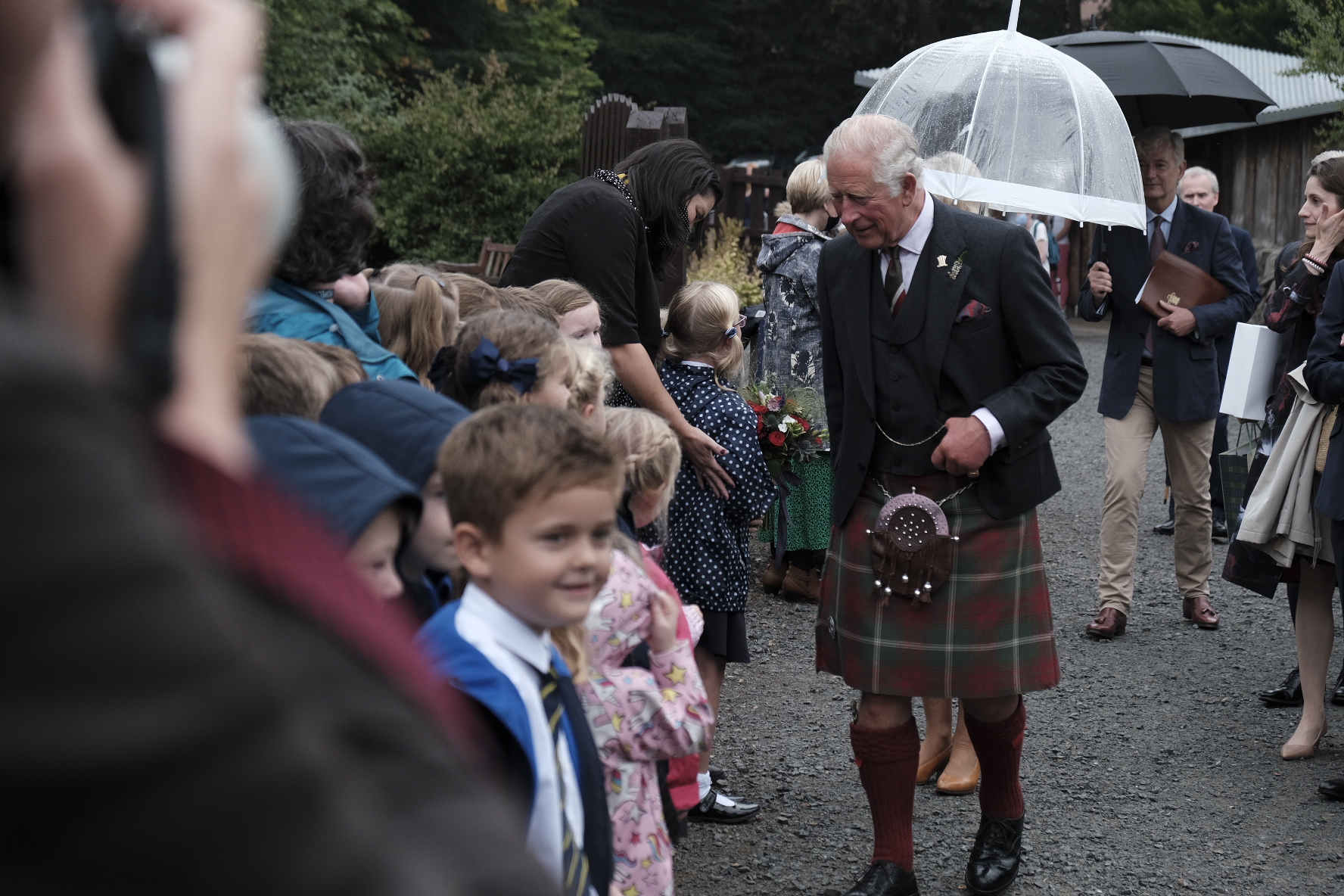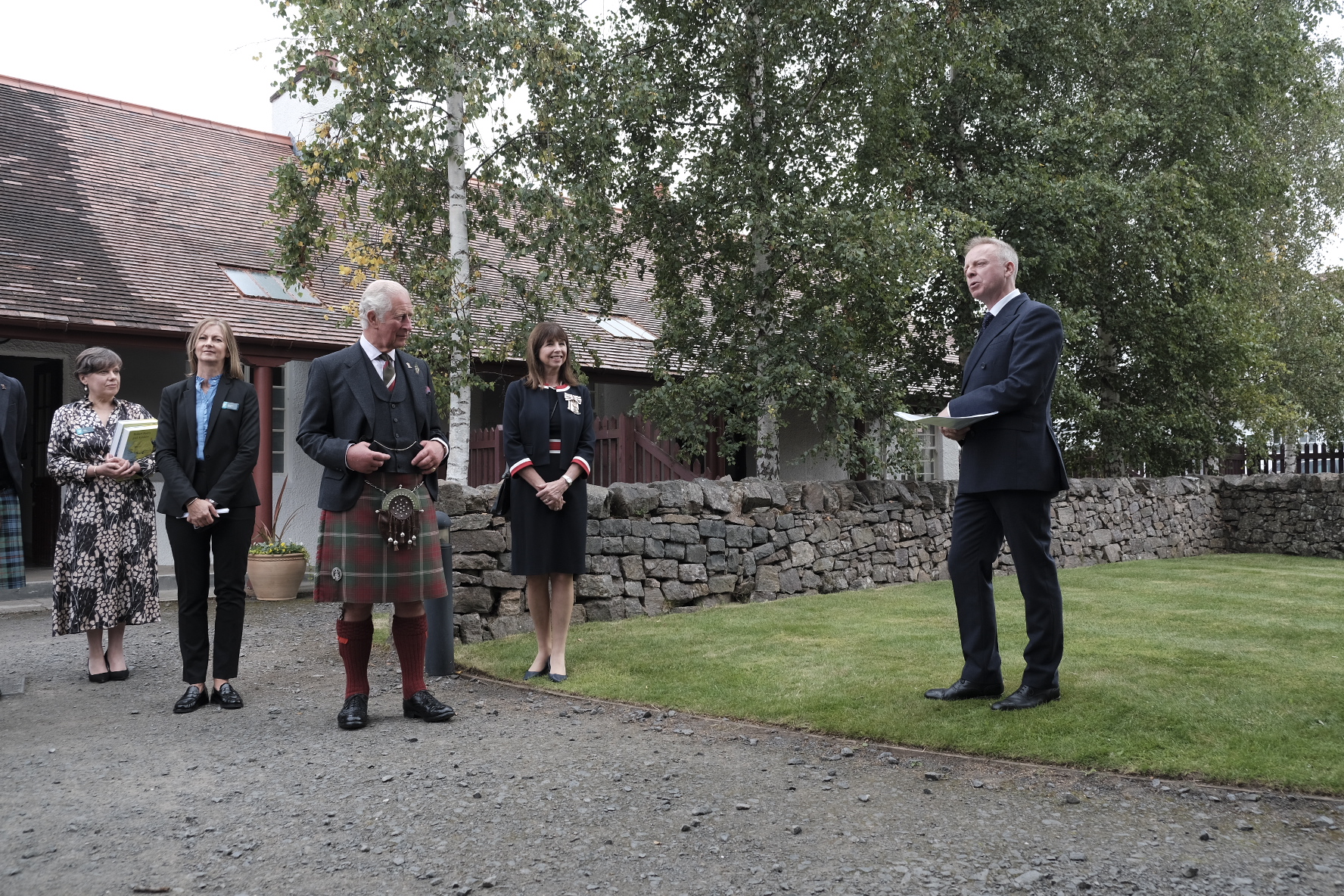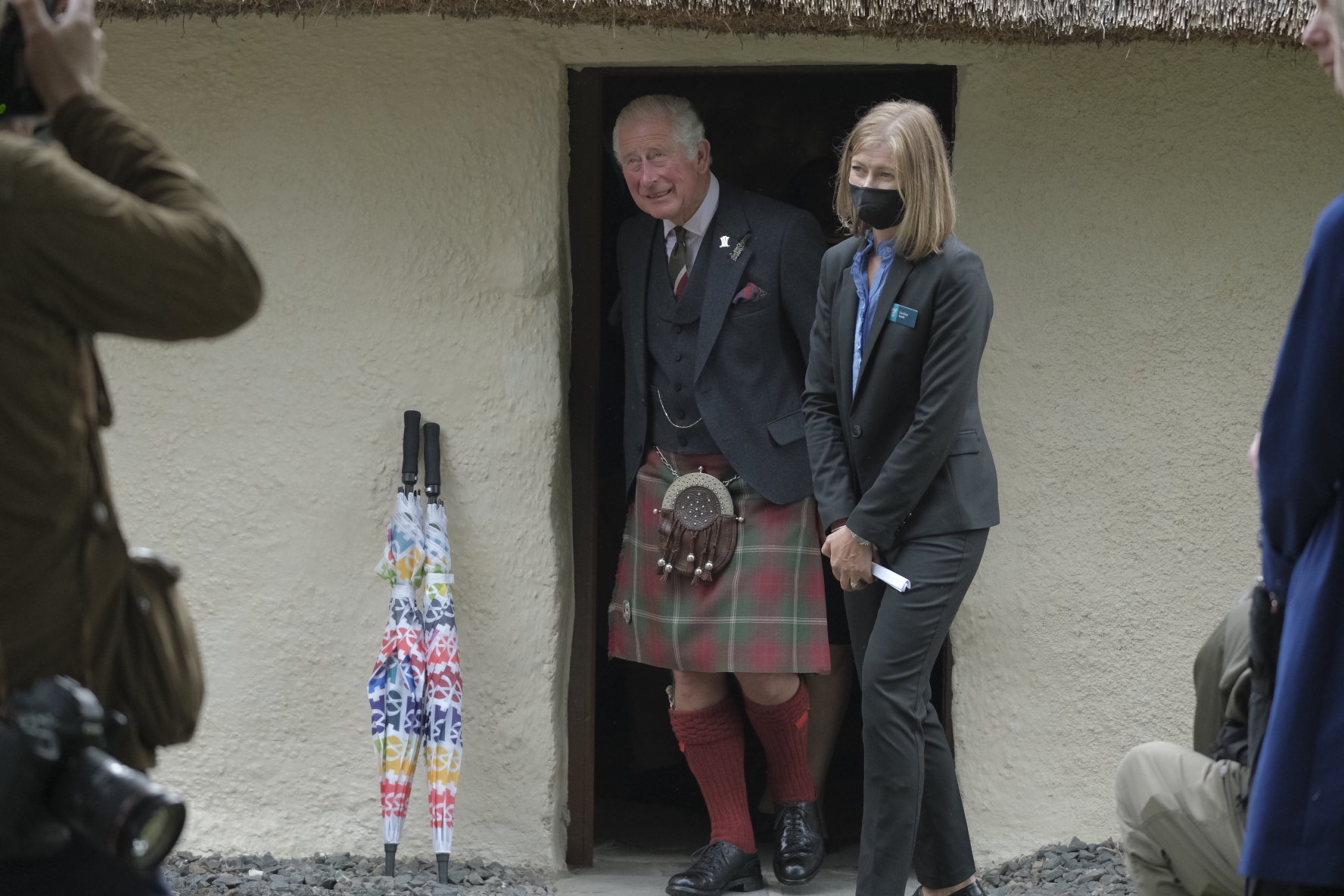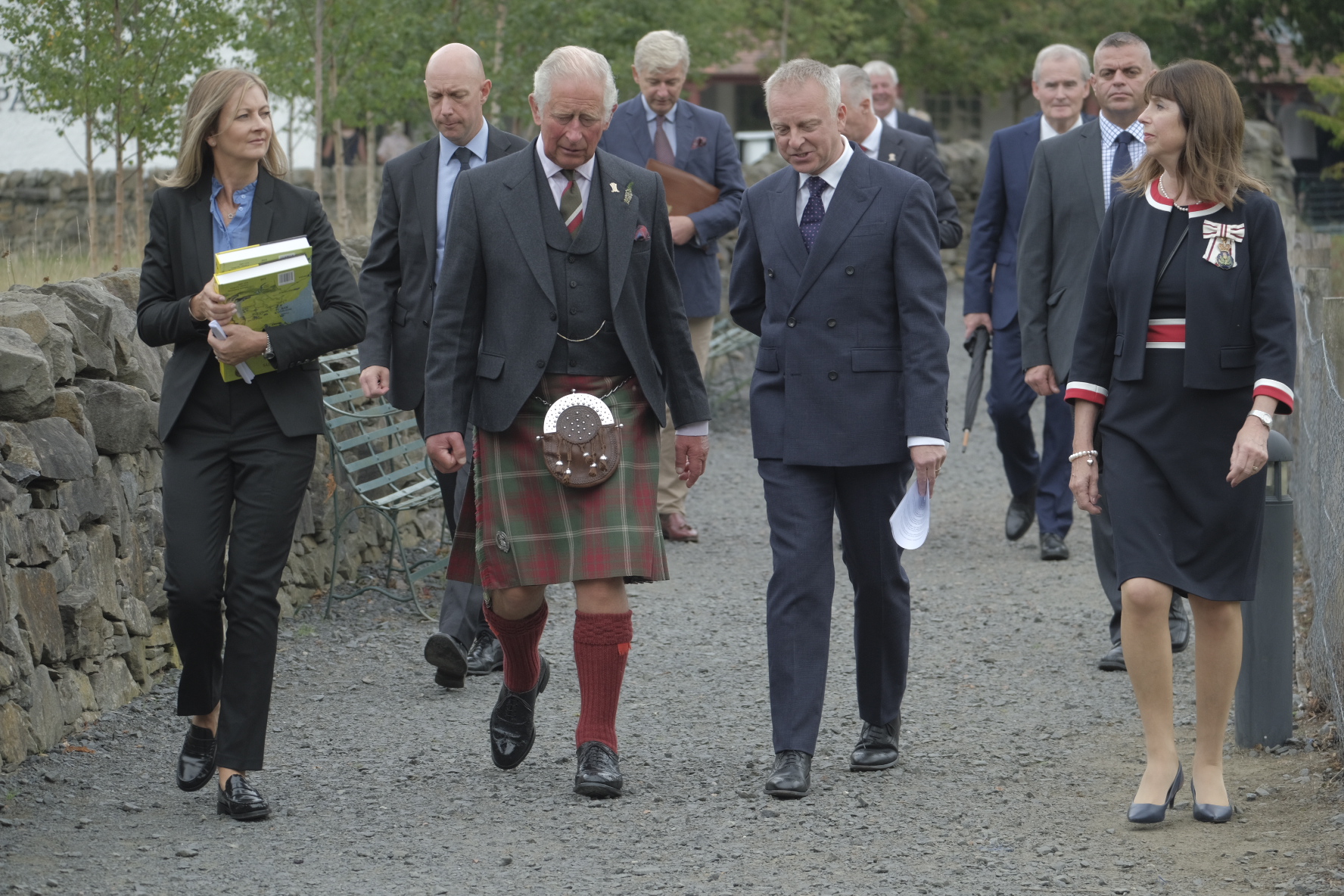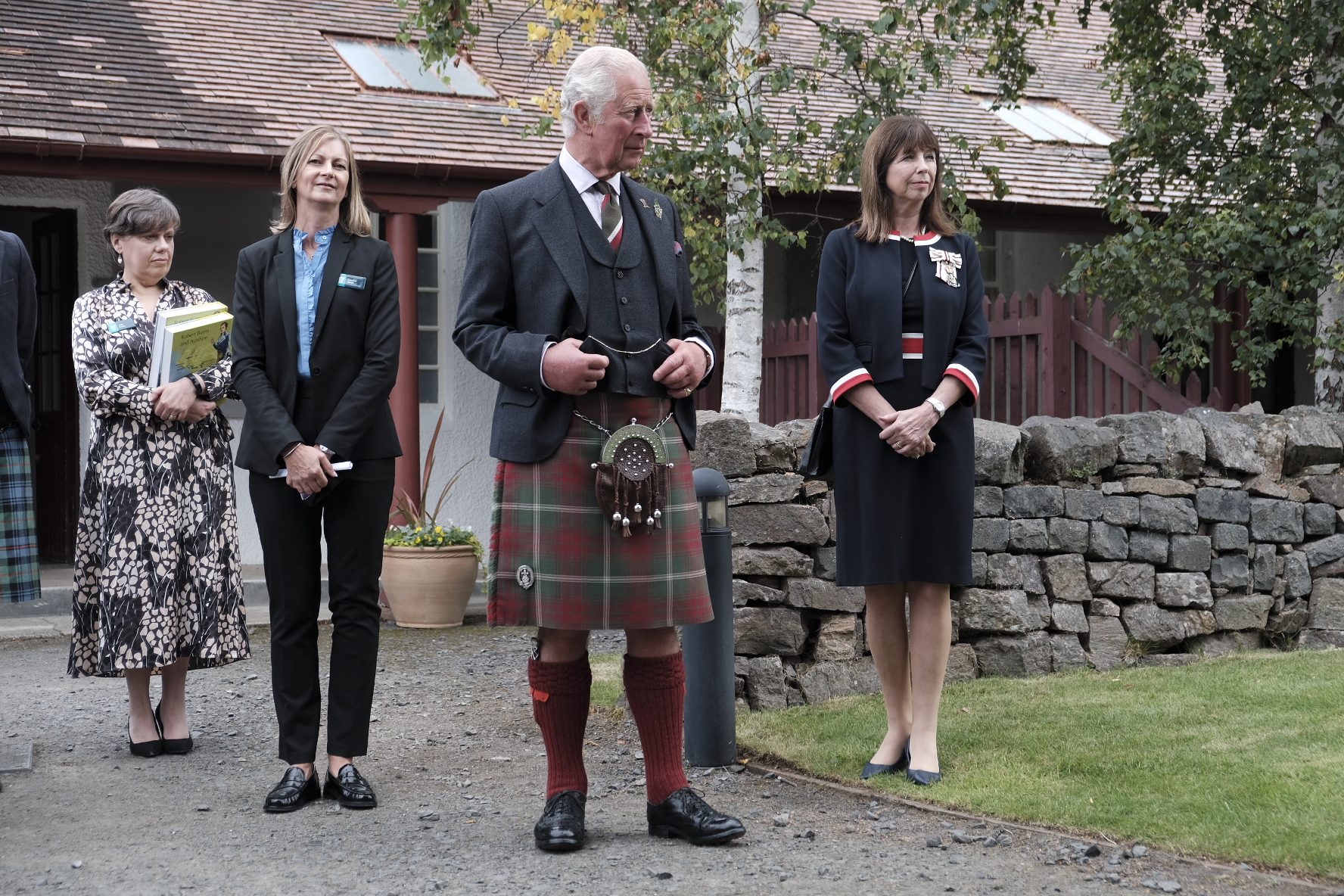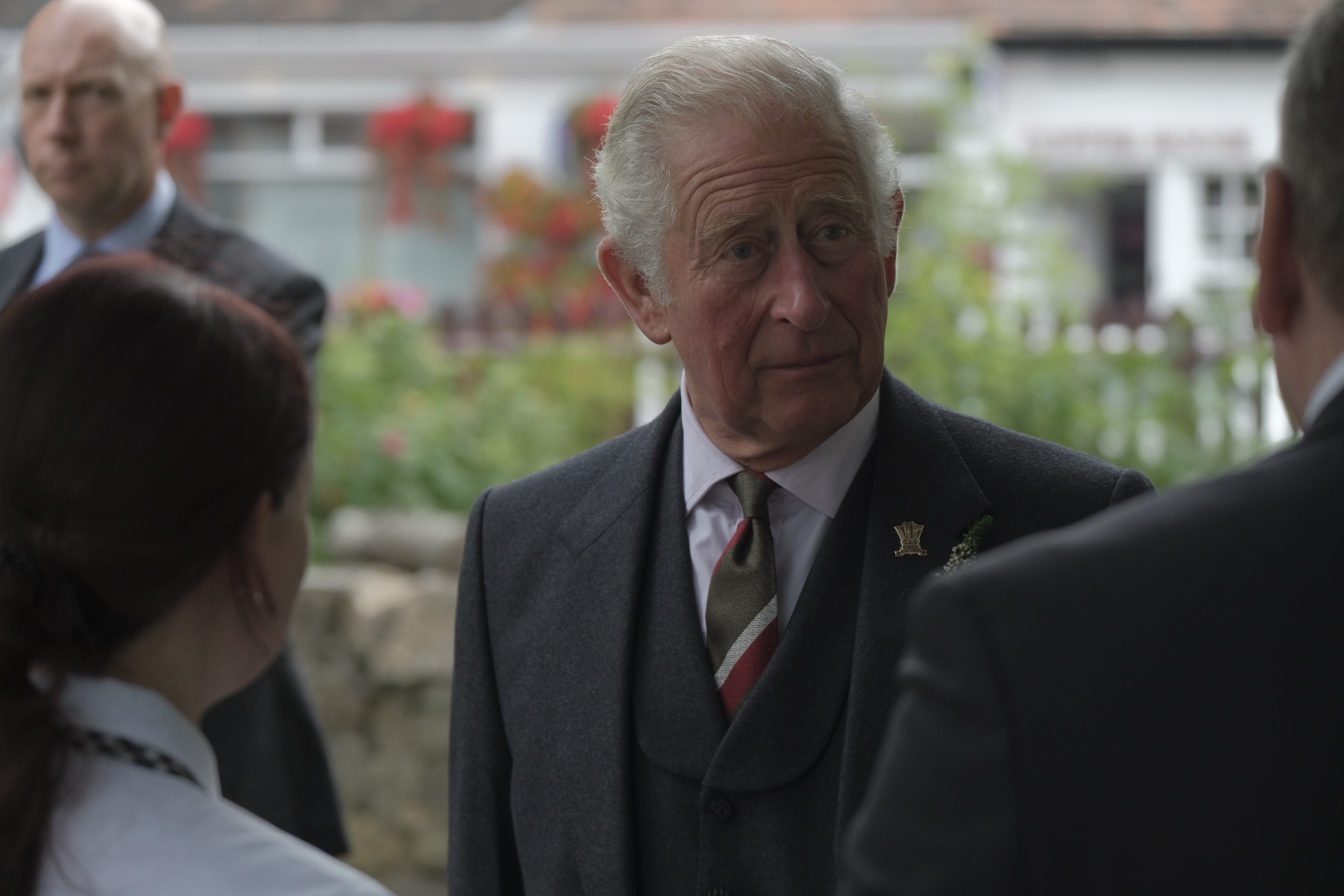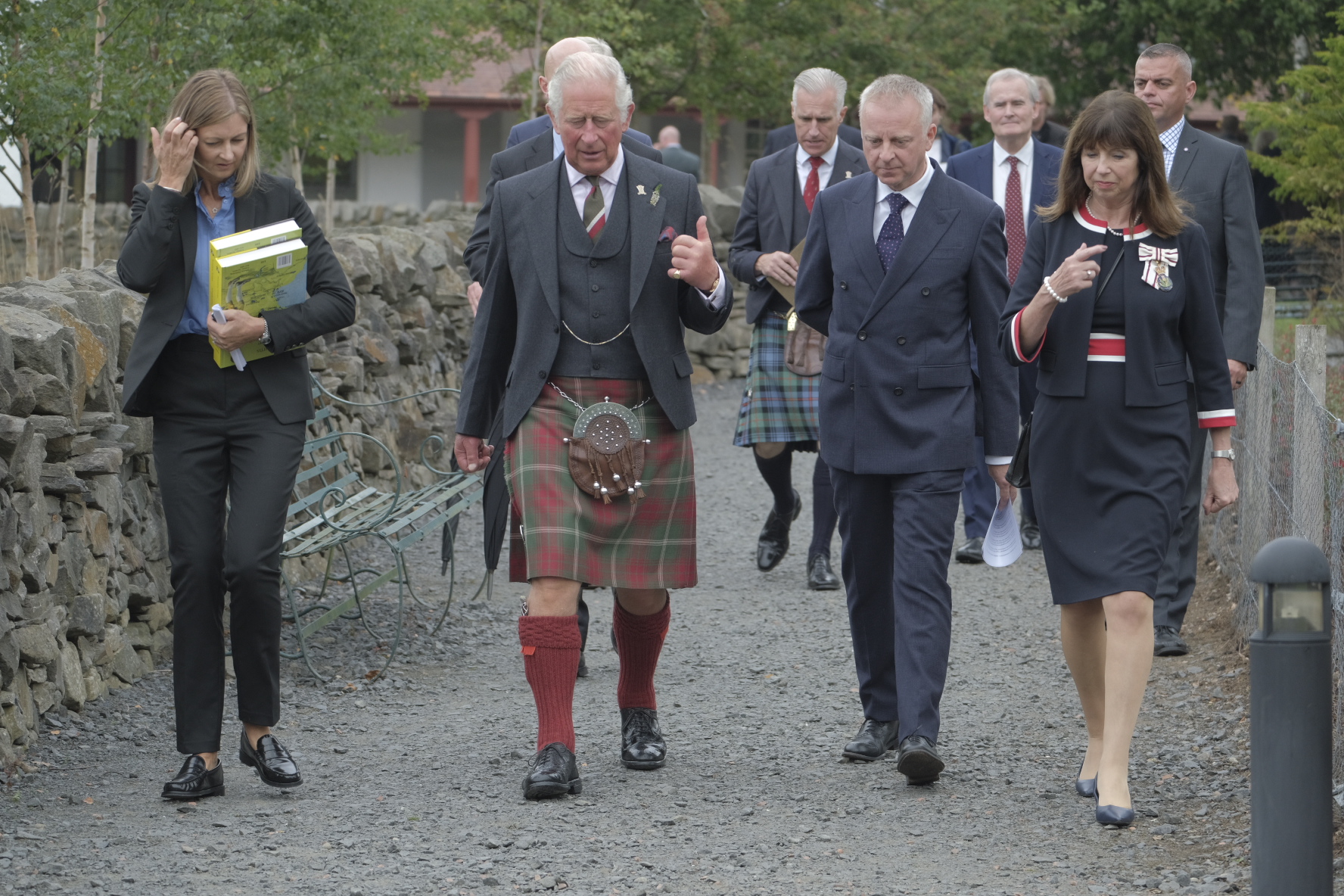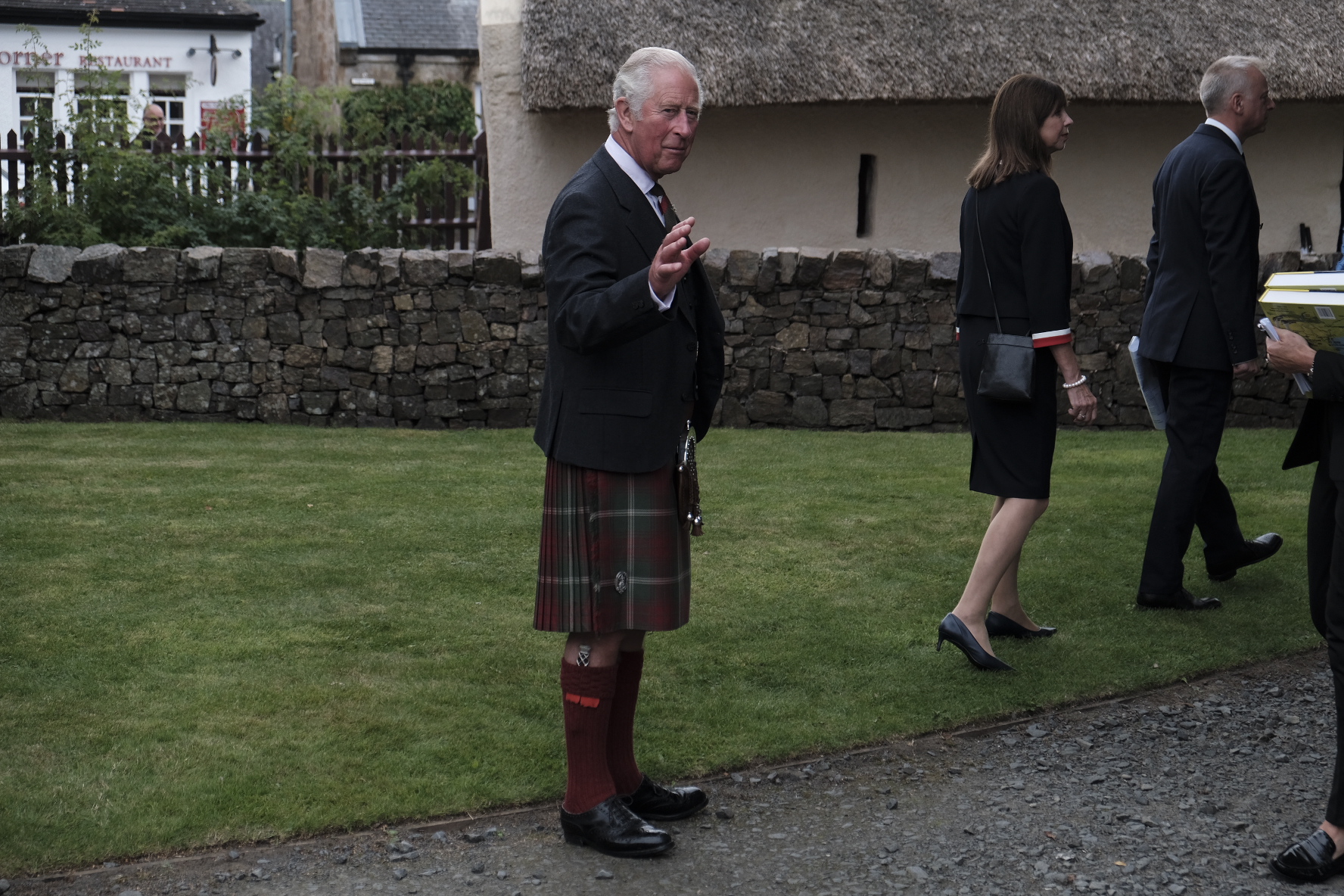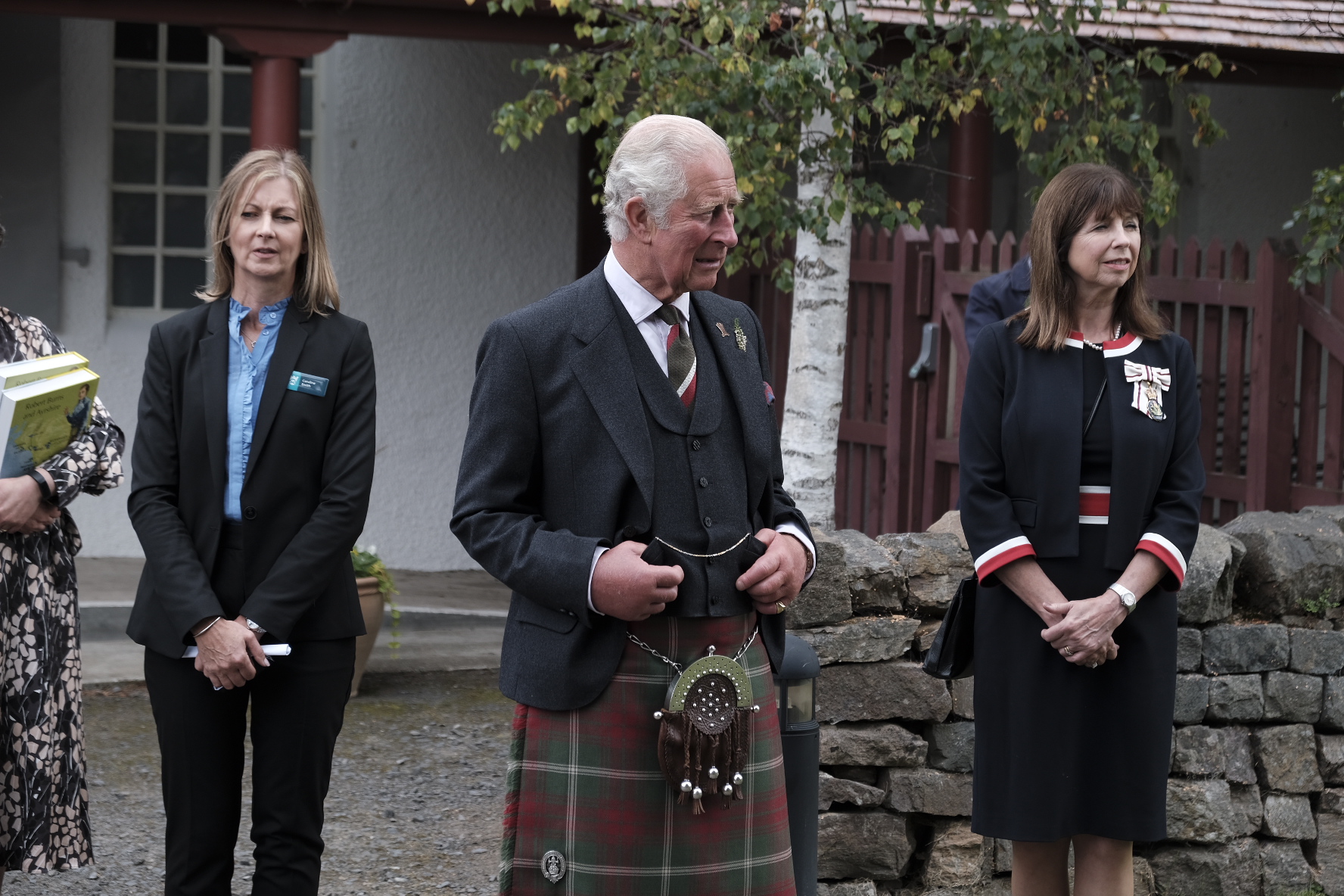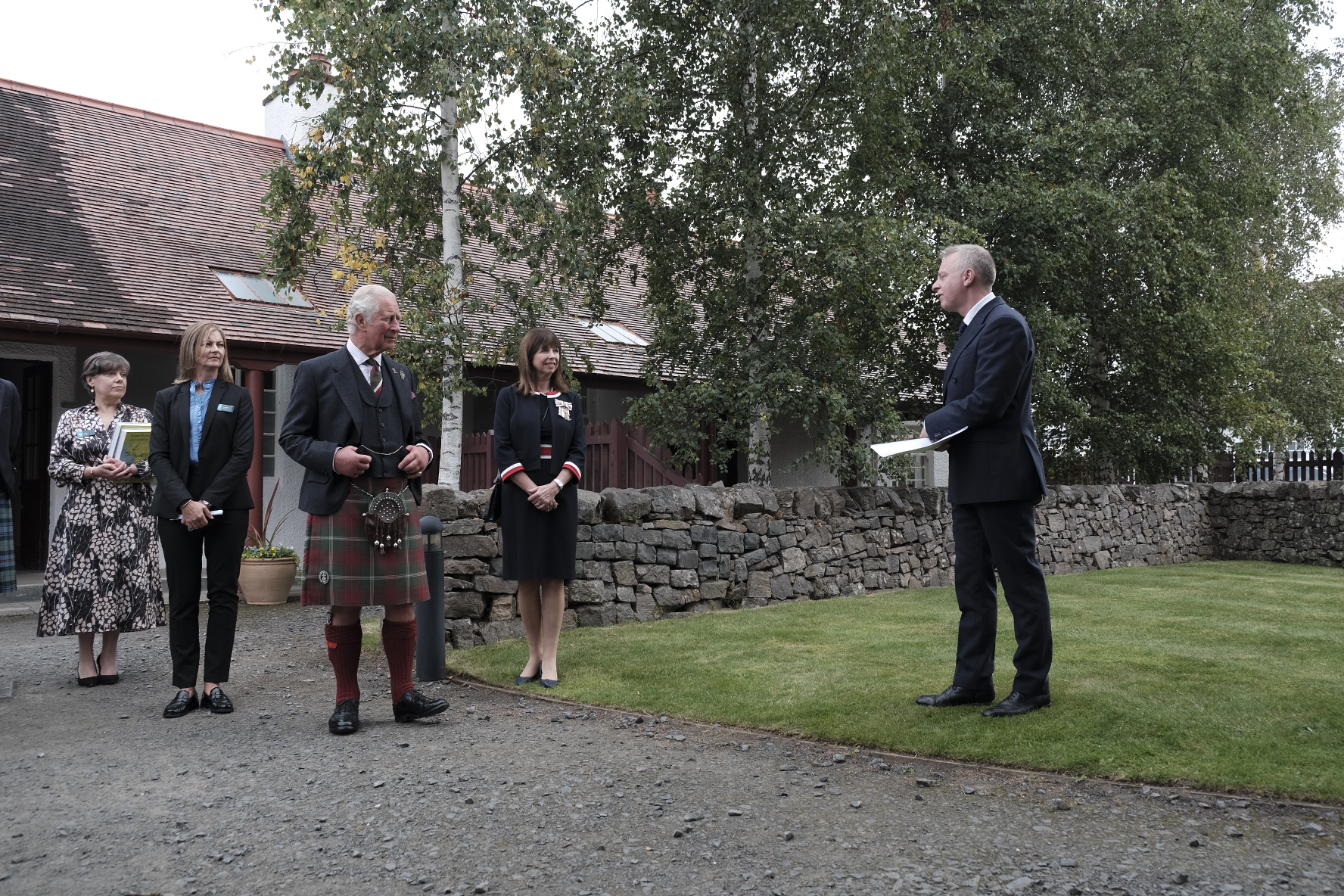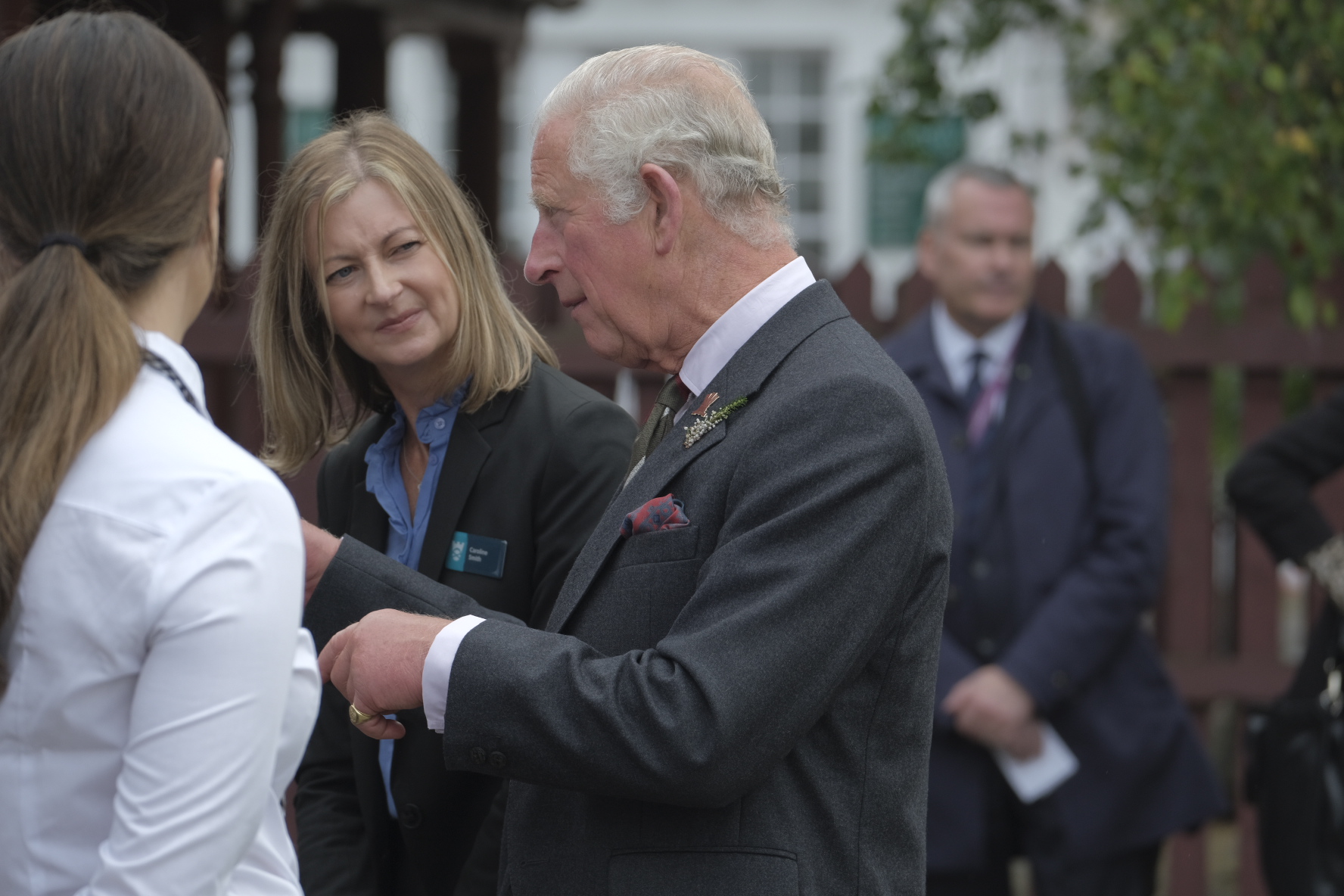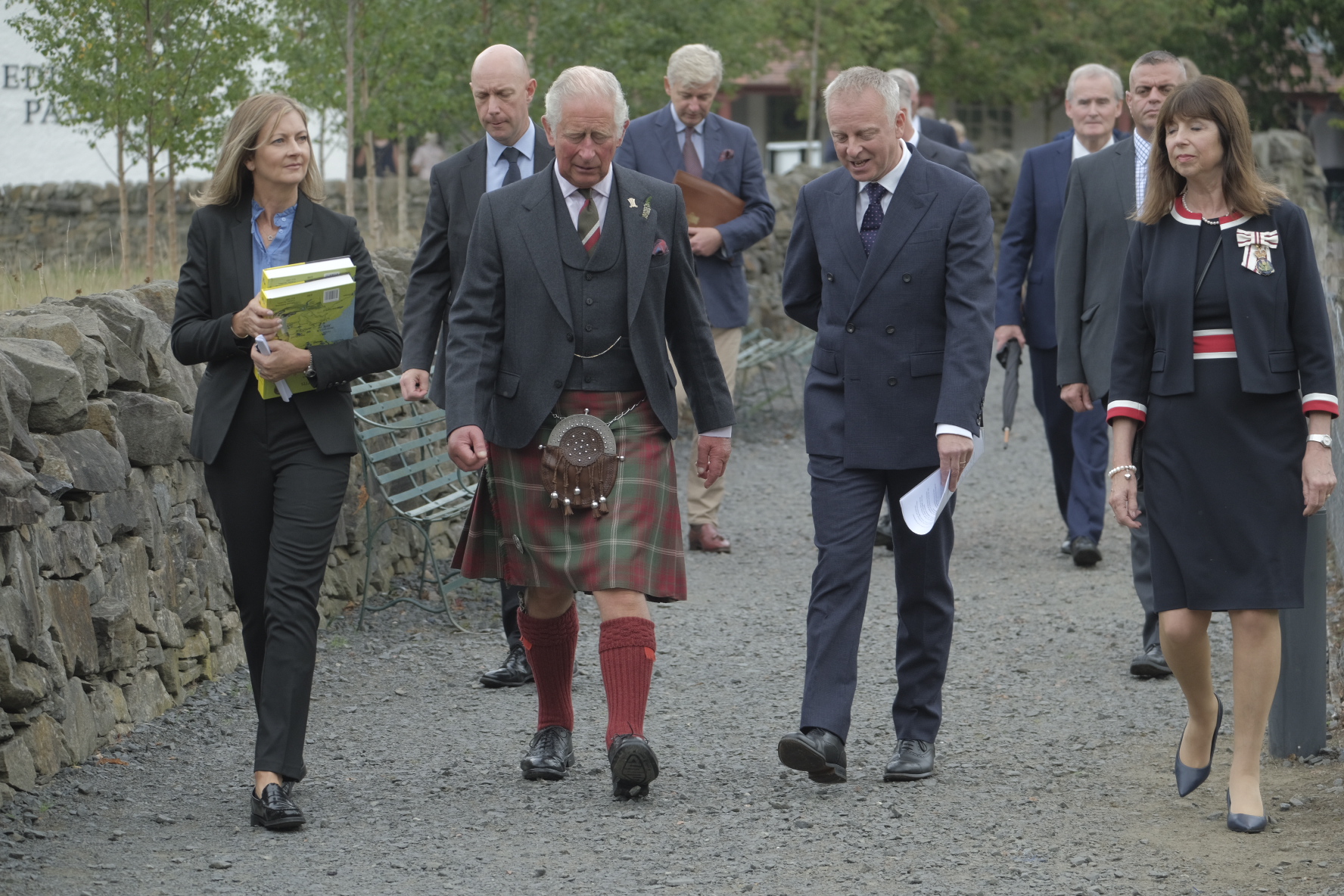The National Trust for Scotland was given royal approval at Burns Cottage in Alloway in Ayrshire.
The conservation charity’s patron, HRH The Prince Charles, Duke of Rothesay and Her Royal Highness, the Duchess of Rothesay, made their first visit to the cottage last week.
Their Royal Highnesses were greeted by the Lord-Lieutenant of Ayrshire and Arran, Sheriff Iona Sara McDonald in Alloway High Street before making their way to Burns Cottage to be met by Phil Long OBE, chief executive of the National Trust for Scotland and Caroline Smith, operations manager and Chris Waddell, visitor services manager, both of the Trust’s Robert Burns Birthplace Museum.
In the course of their visit, the Royal couple entered the rustic cottage where Robert Burns was born on January 25 1759. The cottage was built by Burns’ father, William Burnes, a tenant farmer.
Among the items placed on display for the Duke and Duchess to view were:
- Jean Armour’s wedding ring – Jean was a very important part of Burns’ life and the inspiration for many of his poems and love songs. Her ring is contained in a box, which has two signet rings on either side of the wedding ring. Each of the signet rings holds a fragment of the couple’s hair.
- Auld Lang Syne manuscript – An original manuscript dating back to 1793 and one of only six know to be in existence that we know of. It features the original prose of the poem in Burns’ handwriting.
- The Uncut Kilmarnock Edition: Poems, Chiefly in the Scottish Dialect – This is the only one in existence in its raw state before being bound and personalised. Published by John Wilson of Kilmarnock on 31st July 1786 at the cost of three shillings per copy. The success of the book undoubtedly formed a turning point in Burns’ life as he was about to depart Scotland and sail to Jamaica.
- Robert Burns’ socks – Knitted, probably by a family member, they have his initials sewn at the top. From their measurements we can tell that he would have been around a size eight.
The Duke and Duchess also met with local schoolchildren and enjoyed a brief performance played on a violin that had been owned by Burns’ dance teacher, William Gregg, and may have been played by the Bard himself.
- Prince Charles and the Duchess of Cornwall arrive at Burns Cottage
On leaving the cottage, the Duke of Rothesay joined front-line staff and volunteers from the National Trust for Scotland at a reception to mark the charity’s 90th anniversary.
Phil Long said: ‘It was delight to welcome their royal highnesses to one of the most culturally significant places cared for by the Trust.
‘The humble origins of Robert Burns, in a building his family shared with livestock, provide a breath-taking juxtaposition with the worldwide fame and undying influence his talent enabled him to achieve.
‘The Duke and Duchess asked many questions and their fascination with the cottage and the history it embodies it was evident for all to see.
‘It was also wonderful that The Duke was able to join some of the dedicated volunteers and staff who care for the cottage and the collections within the Robert Burns Birthplace Museum. We reflected upon the 90 years our charity has devoted to conserving, protecting and sharing some of the finest of Scotland’s historic buildings and our rich cultural and natural heritage.’
The last Royal Visit to Burns Cottage by Her Majesty The Queen and The Duke of Edinburgh in 1995.
Prince Charles, Duke of Rothesay has been the Patron of National Trust for Scotland since 2003, succeeding Her Majesty The Queen Mother in this role.
TAGS

